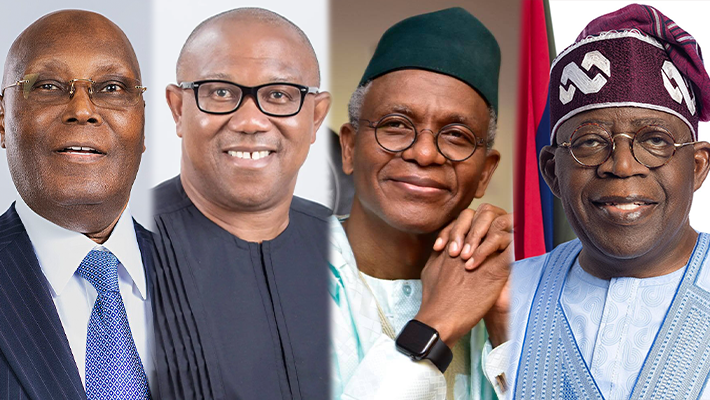In Nigeria, the idea of political coalitions has never been taken lightly by key figures advocating their necessity. Rather than diminishing, the coalition movement continues to grow stronger by the day, even amid high-profile defections.
Instead of weakening alliances or dampening the resolve of their proponents, defections often le ad to renewed strategic engagement, tighter coordination, and fresh alignments that strengthen the resilience and influence of these coalitions.
Before Nigeria’s return to democratic rule, the country had already witnessed a notable coalition between the Northern People’s Congress (NPC) and the National Council of Nigeria and the Cameroons (NCNC). This alliance governed the nation up until independence in 1960.
READ ALSO: El-Rufai son backs Tinubu’s second term, defies father’s exit from APC
Aside from the NCNC, which itself emerged from a coalition, Nigeria has witnessed several other coalition attempts—some successful, others not. Yet, these outcomes have not discouraged political actors, many of whom still believe that dominant parties holding key decision-making positions can be unseated through well-structured alliances.
In the early days of the Fourth Republic, the 1999 elections saw an alliance between the All People’s Party (APP) and the Alliance for Democracy (AD), aimed at boosting their chances at the polls—especially in the presidential race. However, the coalition failed to yield the desired outcome, as the People’s Democratic Party (PDP) remained dominant.
To challenge the PDP’s 16-year hold on power, several major parties—including the Action Congress of Nigeria (ACN), Congress for Progressive Change (CPC), All Nigeria Peoples Party (ANPP), and a faction of the All Progressives Grand Alliance (APGA), merged to form the All Progressives Congress (APC). This coalition ultimately succeeded in unseating the PDP.
Although APC’s emergence was largely driven by the desire to wrest power from the PDP, one key factor in its success was the deteriorating security situation in the North, particularly the Boko Haram insurgency.
By capitalising on national issues such as insecurity, economic hardship, and public dissatisfaction, the APC’s merger bore significant political fruits. The party went on to win the 2015 presidential election and secured 19 out of the 28 governorship seats. It also claimed a majority in the 8th National Assembly.
This alignment solidified the APC’s status as Nigeria’s ruling party, relegating the PDP to the opposition.
READ ALSO: Nigeria not sliding into one-party rule — politicians joining APC for self-gain
Nearly twelve years later, discussions of a new coalition are underway—this time aimed at unseating the APC. These talks follow internal crises within both the Labour Party and the PDP, with prominent figures such as former PDP presidential candidate Atiku Abubakar and former Kaduna State governor Nasir El-Rufai reportedly at the centre of the movement.
Given President Bola Tinubu’s extensive political experience, dislodging him may prove challenging. Whether possible or not, any attempt to do so will likely require a multifaceted and highly strategic approach from the opposition.
While opposition coalitions may seek to leverage pressing national issues like insecurity, economic hardship, and widespread hunger, success will not come solely from public discontent. A unified front, strong leadership, empathy, relatability, renewed hope, effective mobilisation, and grassroots engagement will be crucial.

Weighing in on the matter, a political analyst, Emmanuel Jimo did not rule out the possibility of a coalition unseating a president or party.
Jimo, however, stated that the coalition reportedly being formed is unlikely to unseat Tinubu or the APC in 2027, as he described it as a frivolous alliance.
He said, “Ordinarily, coalition ought to be an instrument, a formidable instrument to combat a ruling party that is believed to not be doing well enough for the aspiration of the people. But from the coalition that I see today, it is just done by largely usually malicious politicians. I see a lot of times abuse of coalition. So, in short, I do not consider it getting better. I think at best, it is still the same old game.
‘Yes, a coalition can, but I say that again, it is not a careless one. It is not a haphazard one. It is not a frivolous one. It must be planned and carefully executed. Otherwise, you can be sure that Tinibu will have a second term, come 2027. You will say that I said so.”
He added that the purported coalition being championed by El-Rufai and Atiku was unlikely to succeed, stressing that individuals nursing personal grudges or discontent with their political parties could not form a cohesive, coherent, and effective alliance with others.
Jimo stated that Peter Obi stood a strong chance if included in the coalition, but emphasised that the participating parties must ensure they have a solid and well-established membership base.
READ ALSO: Futility of selfish coalitions: When disgruntled politicians gang up against progress
“That’s a key factor, and even if they are going to rig elections, the membership base is still very, very important, and secondly, their opposition activities must be deliberate, carefully planned. It’s not something; I mean, a coalition cannot be formed, the third force cannot be formed with bickering and so on and so forth.
“In other words, they must be deliberate about their actions. Otherwise, I repeat, it is easier for the camel to pass through the eye of a needle for a frivolous political party coalition to unseat Bola Tinubu in 2027 own election.”


